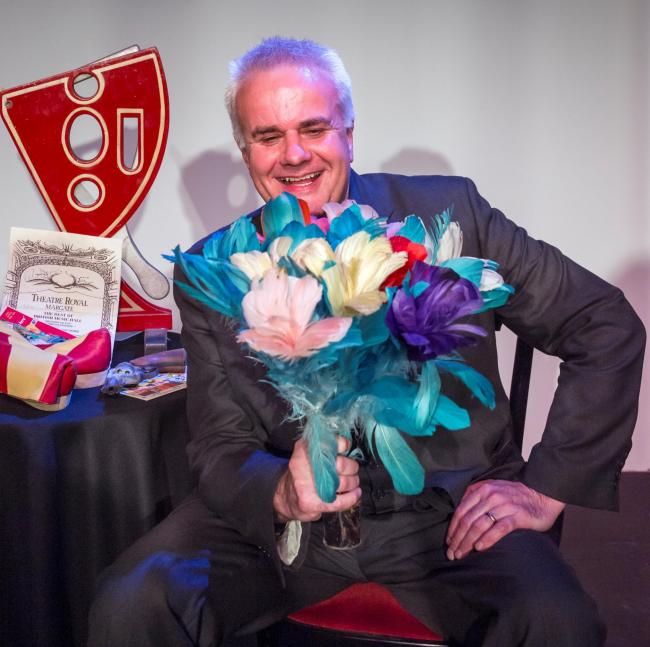
THE comedy is over for the Great Yorkshire Fringe after five summers in York, blaming “city-centre management” for the decision to exit stage left.
In a formal statement, founder and director Martin Witts said: “Our experience of sponsoring, curating and managing an event in this small city of ours has led to the conclusion that until a well-managed and efficient is implemented, a festival of our size cannot thrive and does not have a place in York.”
Here Martin, who also runs the Leicester Square Theatre and Museum of Comedy in London, answers Charles Hutchinson’s questions.
1.What made you take this decision, Martin?
“My patience with all the red tape ran out of time. It was the same things every year, no matter what you try to do to address the most critical things on the Parliament Street village green site. Access. Drainage. The licence. Security. What we were required to do changed every year.
“Right from the start, there were frustrations. We wanted to start the festival in 2014, but it took a year to get the licence from the city council for Parliament Street.”
2.What would constitute a “well-managed and efficient city-centre management”?
“The City of York Council, Make It York and York BID are all involved in how the city centre is run. Everyone has great intentions, but there are too many chiefs, not enough Indians, and it’s got too complicated. That’s the frustration.”
3.Sean Bullick, managing director of Make It York, says he would “welcome the opportunity to discuss options with you to bring the event back”. Will you have that discussion?
“I had a meeting with Sean and Charlie Croft [assistant director of communities and culture at City of YorkCouncil] last year to say this needs to be resolved, but we still had problems at last summer’s festival with the drainage provision for the toilets.”
4. Last summer, some people said the ticket prices were high; some reckoned the quality of the newer acts had lowered; others felt the same names kept returning. Your thoughts?
“We had no complaints about the festival content or the programming or the pricing. There were no negative comments from patrons on our social media and in the box-office day book. Indeed, only positives. The average ticket price remained the same.
“But there was a drop in audience numbers certainly, when the Shakespeare’s Rose Theatre, running at the same time at the Castle car park, had an impact.”
5. Do festivals have a natural cycle, especially when the fickle world of comedy is prone to “the new rock’n’roll” going in and out of fashion?
“No, I disagree with that. Comedy always has a new audience and new acts. You only have to see the popularity of the New Comedian of the Year award we ran each year.
“Comedy is always changing, but people like to keep seeing their favourite comedian too.”
6.Emotionally, how do you feel about calling a halt to the Great Yorkshire Fringe after five years?
“I’m incredibly disappointed to be having to do this. You should see the messages I’ve had from the volunteers who worked for the Fringe saying it was the highlight of their career. It was the highlight of my career too.
“In an ideal world, if it had been easier, if there wasn’t the problem of the structure of the city-centre management, we would like to have continued the festival, but your patience runs out in the end when you want things to run smoothly.”
7. What did you achieve?
”We were committed to running the festival for five years and you hope that after those five years, you’ve covered your costs, broken even, and established yourself, which we had – and we proved Parliament Street could be a village green with shows and all the food and drink stalls.”
8. Would you consider taking the Great Yorkshire Fringe to another great Yorkshire city?
“No, absolutely not. I’m not planning to move it to Leeds. This festival was always designed for the city of York, the city where my family is from. York is the capital city of Yorkshire; the second city of the world.”
9. You say you will “continue to invest in the cultural scene of York”. In what ways will you do this?
“We’ll continue to do events in York, but not hold the festival, but do them in the spirit of the Great Yorkshire Fringe. We’ll probably have a year off but we’ll support The Arts Barge by doing a couple of things with them in York this summer.”
10. What else is happening in the world of Witts right now?
“We’re opening a scenery workshop in Pocklington, and I’ve bought the contents of the Goole Waterways Museum after it went into liquidation. We might look at doing something with antiquities and artefacts there.”
